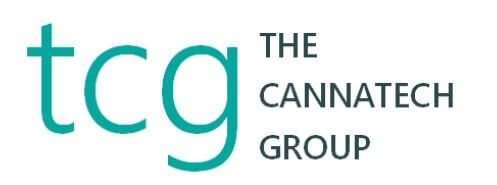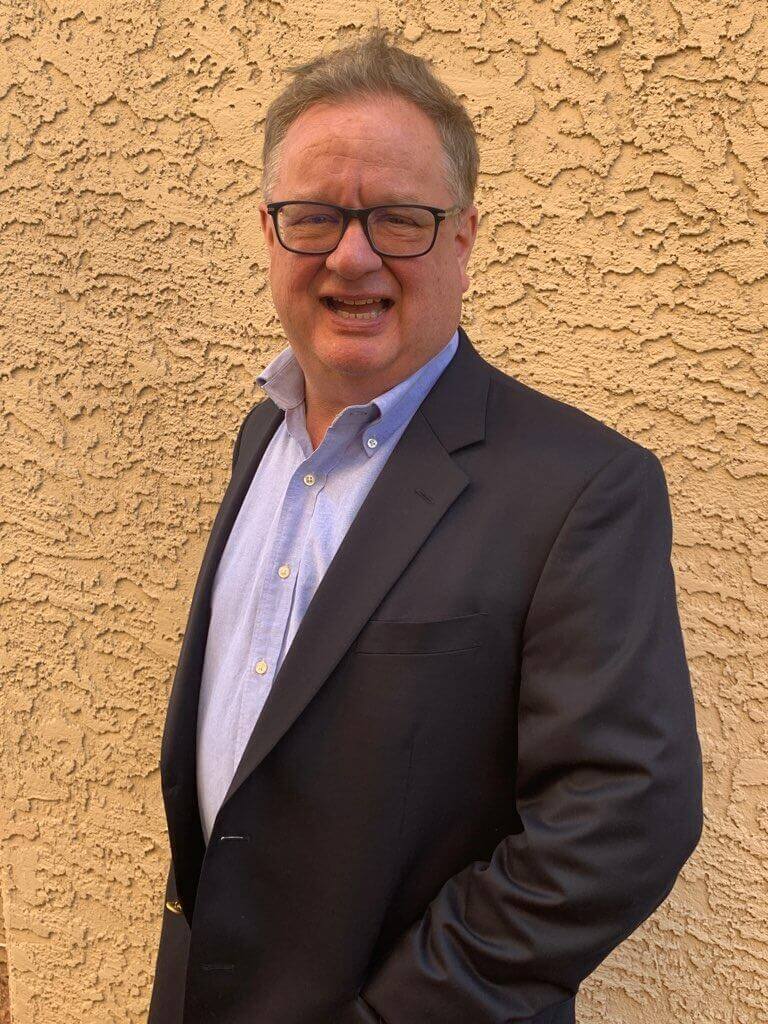The technology you use is one of the most important things you can do for your business. Technology over the years has helped businesses grow, survive and evolve as it can help with everything from understanding cashflow, managing products, and more. By choosing and implementing the proper technology you not only empower your employees by making reporting, sales and business decisions faster, but also have business data at your fingertips at all times. We meet with Cova Software CEO Gary Cohen on the importance of choosing the right POS system and the advantages it can have for your business and clients.
Video Transcriptions
Harry Brelsford
Hey everybody, Harry here. And I’m with Gary Cohen from Cova Software. Sir, how’re you doing in Denver, Colorado today?
Gary Cohen
I’m doing excellent. Great, great.
Harry Brelsford
Well, you’re sure one of the you know, it’s like Silicon Valley. So con for us, you know, Denver, Seattle. I mean, there’s the hotbed that Denver is a hotbed, no question about it for cannabis and cannabis technology. So we’re talking about Cova Software. First of all, what is COVID? Software? And what bucket are you and I think you’re important to sales.
Gary Cohen
We are we’re, you know, Retail Management Platform. So when we built this, our goal was to be the connector of the industry. And we built Cova on an open API architecture that was very sophisticated, but easy to connect into. And we actually came to Denver, I moved back, I’m a fourth generation Denver, right. But I moved back to start Cova, five and a half years ago here in Denver.
Harry Brelsford
Oh, wow. I didn’t realize it. I’m dealing with the founder. Yeah. So yeah, that’s usually above my paygrade. Thank you.
Gary Cohen
Well, I don’t know about that. But, you know, but this is where it was all happening. You know, both from a regular in, we built out Cova. First, to meet Colorado rigs, because Colorado, was probably the most advanced and the most thorough in how they rolled out the recreational side. And we came up with this, you know, proposition to the market that we would be compliance first. So I learned from all the due diligence we did, before we started even building the software that owners would say, and by the way, we spun out of a huge POS company in Canada. So we kind of hit the ground with infrastructure and experience and all that. But as I was telling retail dispensary owners, about Cova, and our story, and how we had all this experience and know how and and they said, if you don’t get the compliance thing, I don’t really we don’t care about any of that. We’ve gone through so much to get a license. And that’s the most important thing. So we we built it on helping clients preserve their license that yeah, in his job one. Now I like it,
Harry Brelsford
your, your what is that? You know, I track the industry as a principal analyst, and I’m looking at the logo chart, look at your logo. That’s a very interesting take that your reason for being is compliance, because that’s, that’s not the case with every logo I’m looking at.
Gary Cohen
Now, and, you know, we were, we’re the largest POS in the cannabis industry as a brand, with, you know, over 1800 stores using it and another 400 in some stage of licensing construction permit. And so we were the last we were the last ones in of the big companies that do do and went to the, you know, kind of went to the front of the pack incredibly fast because we launched commercially in November of 17. Yes, we spent over a year kind of taking the core elements from the parent company, building all the cannabis layers on top. And everyone always asked me, like, what’s your secret to success? And I think that compliance piece was one thing. But more importantly, we had the we kind of entered the industry at scale. So interest COVID has been technologically more advanced than where the industry is, at the time. And we’re, you know, not only in IT infrastructure, so from a scalability, reliability, security, those things. But as far as the application itself, it was built in a way that it was very easy to use, easy to learn. In that was if there’s a secret sauce, it’s no different than Apple’s. It’s the UI UX. Yeah, I agree that that, you know, they hadn’t seen and, and then lastly, you know, we’re we’re mostly Canadian. So the, the majority of all of our development is in Canada. We don’t offshore it anywhere else. And Canadians are the nicest people in the world they really are, you know, so as we were building this out the degree of care was kind of our differentiator, because in the early days, like 18, and 19, I wouldn’t say our product was superior. It was we went to market with an MVP. But we had all those, all that service and support that a big company can offer. And that kind of kept us in the game. And then over the years, our product got better and better and better. And and I think that, you know, I know CEOs all the time, say it’s our people. And, and I’m gonna say it too, because it was really our people that kept us in the game. And the way that we’ve managed the business is incredibly responsive to dispensary owners, which by the way, it’s all we do, we don’t do grow nips, transportation. We took the 20 years of retail knowhow flagged it in here, and have applied it kind of at an enterprise scale. Yeah. So that’s, that’s our secret sauce. That’s who we are and how we got here.
Harry Brelsford
I like it. Now, a couple questions. Are you investor backed? Or have you grown organically or I always ask that,
Gary Cohen
you know, we, we, I was the lucky CEO who had the seed money from the parent company has kind of a is kind of a project. You know, they have about 84% share of the cellular phone stores in North America. Okay, and needed to diversify, wanted to go into another vertical. But a cellular store is unbelievably complex from a technology standpoint. Because you never think of it but between running your credit programming, a sim rate plans, hardware subsidies, warranty, insurance, exchange programs, financing like it, and then horizons systems and processes are different than 18, T’s, and Timo. So the level of complexity is huge. And their secret sauce was simplify complexity. So we did the same approach and went into cannabis because it is highly complex. So where our funding came from was originally taking all of that know how and money from those guys. But then we did raise one round and had a private equity firm out of Saskatchewan kind of take the whole round. And Cova has been very lean and you know, profitable for the last few years. So we’re very grown the business.
Harry Brelsford
I No question. And let me go look at Robin Hood, the trading platform. I’m just gonna have a little fun with you and you don’t have to answer but um, well, were you at the MCI a cannabis business summit, mid December in San Francisco. I went I don’t know if your your reps when not this year. Okay. Quite good. About half the size, but they had an investor track. And my SAT two days in the front row. I mean, just wicked smart people, right, just laying it out for you, and investments in the economy. So I learned you know, I only know what I know. But I learned you know, last year was a bloodbath and cannabis stocks. Right. And, and so then I took their advice, and I bought into some of the indexes. I’m an index guy, and I’m looking at Robin Hood, and I’m basically coming about up back to breakeven. December was about like, 2021 for whatever reason. So my question is, Are you are you analyzing the point of sale data you get are you know, you’re you’re gonna have visibility and data and at analyze that videoblog it and see, tell me what the indexes are going to do?
Gary Cohen
Well, geez, that’s, that’s a whole rash of questions. Not the No, we don’t, we don’t blog on the data. We’re actually we look at the data in response to, to kind of how our clients are doing and Cova provides really deep in thorough reporting back to our individual clients about their you know, most of our clients are multi store, or um, so yeah, multi store within their province or state. Yeah. And then we have some MSOs so then I’m looking at looking at all their performance. And in a roundabout way to help you answer your question. I think that from a publicly traded standpoint, there’s there’s going to be a mixed bag of winners and losers in, in this group of consolidators. Yeah, think of the industry, I think of the industry. In terms of first mark, every market is its own country. So every state has its own fifth stage of development. So from nascent to mature, then you look at what the regulatory environment is. So what is going to be this, the supply of whether it’s growing or distribution or retail. And if you look at it over time, you can see, each one of these markets is its own econ book, like all the Principles of Economics kick in state by state. And you can see where they get to that point of hyper competition. And when that kicks in, all of a sudden, the the exuberance of the green rush wears off, and now it becomes who’s efficient, who operates? Well. And I think that the MSOs and the bigger players in the market, there’s, there’s good operators, and there’s bad operators. Oh, sure. And what we see is, you know, bad deals, you know, kind of like head scratchers don’t get it. But I think that when you look at who’s expanding, and the fundamentals of the states, they’re expanding into, like, my hand is an investor is there’s so many clues about the logic and the, the diligence done, is these guys are trying to move into new states, or consolidate within the states that they have strengthen. Yeah. And, and I also think we’re seeing more failures. So we’re seeing the inefficient players are bad operators, are the people who’ve taken bad money? I think that if you look at the source of their funds, there’s clues that they’re at those second or third level, desperation, funding, you know, funding aspects. And, and that’s bad. So then within the index, you can look at, who are they putting the money on? And you still have to fundamentally go down to what are those companies doing and what kind of decisions
Harry Brelsford
I agree. I just didn’t want to be a Walmart greeter at age 80. Playing individual stocks. That’s why
Gary Cohen
I like indexes. I’m with you. But I do think cannabis is been really tough, because we saw that there was a bubble. Like, absolutely bubble and like two thirds of our businesses in Canada, I look at those big public Canadian LPS in knowing, you know, when you’re a guy on the ground, meeting them going to the growth facilities, I’ve been all over and seen it. And you saw these crazy inefficiencies, like a million square foot grow, and they’re using 200 square feet, 200,000 square feet. And you go, what, why is this in the story doesn’t add up. And eventually there’s going to be a price to pay. Yeah, there was a ton of that. I don’t think the US is the same. The one thing I wanted to share with you that I thought would be fun. Sure, is. You know, I didn’t know if you’re gonna ask me about banking, or legalization or any of that. But what I think is going to be interesting. Is that New Jersey and New York in no way you’re going to meet demand. I don’t care how indoor outdoor. Yeah, I concur. You go to New Jersey or New York go around, you know, the ports. There’s no empty, unused warehouses like we had in Colorado or the west where we could convert and start growing. So there is no, like, just indoor to just take it over. So you’ve got that situation of enormous demand, no supply or poor, you know, poor supply. Then you got California. oversupply. Plenty of plenty of product. And you have Nancy Pelosi, in charge of the Congress. You got Chuck Schumer in Charge of the Senate. Seems like there’s a deal to be made. Yeah, I agree. I agree. How do you think they’re gonna make a deal? Because I don’t think legalization is going to happen fast enough. Well,
Harry Brelsford
yeah, I, I don’t know what the mechanics might be to go cross border with product right? In legalizations a longer story, but you know, I’m coming to you from Austin, Texas, and in fairly good friends with the lead hemp lobbyist up on their Capitol Hill, we’d become friends. And there’s one thing Texans get is they’re now surrounded by some form of legal state, New Mexico, Oklahoma, Louisiana. And they get it they they get it from a tax revenue point of view. You know, the Baptist and some of the conservatives, and I’m being a little facetious, but they, they’re, they’re probably morally opposed to weed, but they understand what that revenue would mean, you know what I mean? And so, Texas could actually pop faster than you think. For that reason alone. They’re going through the same debate with casinos. They don’t have casinos in Texas that’s right across the border, New Mexico. And they’re they’re starting to get annoyed. Right, that money’s just crossing the border. So that’s kind of my take on it is, I think the free market at the state level will in some way solve the problem? Yeah, I can’t speak to federal hoping safe banking comes through. And maybe there’s a hybrid in there somewhere. Right. To your point about inventory.
Gary Cohen
See, I think that they could create some kind of treaty in a tree, it could work, the bypasses legislation. And then the challenge will be transport, because you can’t drive a truck full of pot through Nebraska or Kansas. Yeah. So how are you going to get it from A to B? And you could fly it in M and go over Canada or go over? You know, I just think before the end of the year, we’re gonna see the first interstate cannabis deal. And I think it’s it’s a win win for both of those power brokers to benefit both of their states and yeah, I think it’s gonna happen.
Harry Brelsford
Well, let’s make that the final word.
Gary Cohen
Yep. Well, thanks a lot, Harry. It’s great to talk to you








